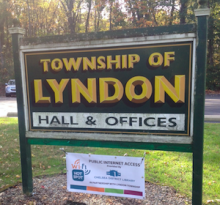This Michigan Township is Making Gig Connectivity Affordable
If you’re looking to move to a community with a relaxing, rural lifestyle and quality Internet access, then Lyndon Township in Michigan may have just jumped to the top of your list. Now that the community has chosen an ISP to serve the community via its publicly owned infrastructure and established the cost of service, they're eager to start deployment.
Lyndon Township Board recently approved rates for their forthcoming fiber network, setting the price of symmetrical 1 Gigabit per second (Gbps) Internet speeds at a reasonable $69.95 per month. This is a nice reward for the township’s residents, who last year approved a tax increase to fund the construction of the network. The affordable residential gig brings Lyndon Township into the same price range as communities such as Lafayette, Louisiana; Westfield, Massachusetts; and Longmont, Colorado.
Local Support Founds, and Funds, the Network
Though only a 20-minute drive from the University of Michigan, a world class research institution, Lyndon Township residents are mostly stuck with expensive, slow, and unreliable satellite Internet service. Around 80 percent of the community doesn’t currently have access to broadband, which the FCC defines as a minimum of 25 Megabits per second (Mbps) download speed and 3 Mbps upload speed.
When attempts to get existing Internet service providers to expand into the community failed, the township decided to build its own Fiber-to-the-Home (FTTH) network. To fund the approximately $7 million network, residents approved a millage increase in 2017, with 66 percent of voters in support. The millage amounts to a property tax increase of $2.91 per $1,000 of taxable property.



